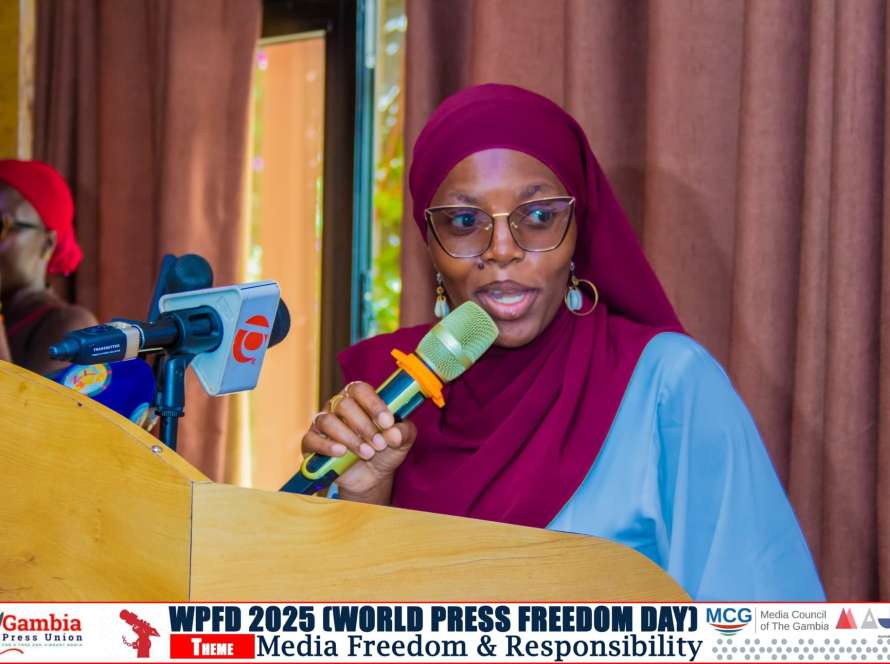At this year’s World Press Freedom Day commemoration in Banjul, the Gambia Press Union (GPU) did not mince words. GPU President Isatou Keita openly criticised the government of President Adama Barrow for its continued weaponisation of laws to suppress independent journalism, drawing uncomfortable parallels with the country’s past under former President Yahya Jammeh.
Speaking on May 3, Isatou Keita cited recent legislative efforts that threaten media freedom, including the National Assembly’s passage of the Criminal Offences Bill in March 2025. Despite a 2018 ECOWAS Court ruling against such measures, the Bill reintroduces the offence of “False Publication and Broadcasting,” a provision widely used during the Jammeh era to silence dissent.
“The GPU submitted a position paper recommending the removal of this draconian clause,” Keita said. “Instead, it has been retained and is already being used to harass and intimidate journalists into self-censorship.”
She also raised alarms about the Cybercrime Bill, 2023, which she said goes far beyond regulating online misinformation. “It directly targets investigative journalism, threatening transparency and accountability in government,” Keita explained. The GPU again submitted concerns to Parliament, this time to the Committee on Education and ICT, but she lamented that the process has become a mere box-ticking exercise. “Our recommendations are consistently ignored,” she added.
Beyond the legal threats, the GPU President highlighted the government’s continued neglect of journalist safety and media sustainability. “Since 2017, physical attacks on journalists have gone unpunished. State advertising is distributed selectively, undermining independent media. The GPU renews its call for an annual media subvention to ensure a level playing field.”
Isatou Keita noted that these issues have contributed to The Gambia’s stagnation on the 2025 Reporters Without Borders Press Freedom Index, where the country remained 58th globally and dropped to 11th in Africa. “Key factors include arbitrary arrests, the unresolved Voice Newspaper case, and economic pressure from high taxes and lack of support for the media,” she said.
She also drew attention to the worsening labour conditions faced by Gambian journalists. “Young and female journalists are overworked and underpaid—often with salaries delayed for months,” she said. “We urge media owners to sign and implement the GPU’s Collective Bargaining Agreement, which outlines fair labour practices.”
While critical of national policies, Isatou Keita welcomed the global focus of this year’s World Press Freedom Day theme: “Reporting in the Brave New World: The Impact of Artificial Intelligence on Press Freedom and the Media.” She described it as timely, given the growing influence of AI in shaping how journalism is produced and consumed.
“AI offers exciting tools for open-source investigation and combating disinformation, but also raises ethical and economic concerns,” she said. “From deepfakes to algorithmic bias and data mining, AI threatens the credibility of news and the livelihoods of journalists. Media workers deserve fair remuneration when their original content is scraped or replicated by AI tools.”
The GPU President concluded by calling for collective responsibility within the media community: “We must uphold the same values we demand from others, respect for human rights, fair labour practices, and a commitment to the truth.”




